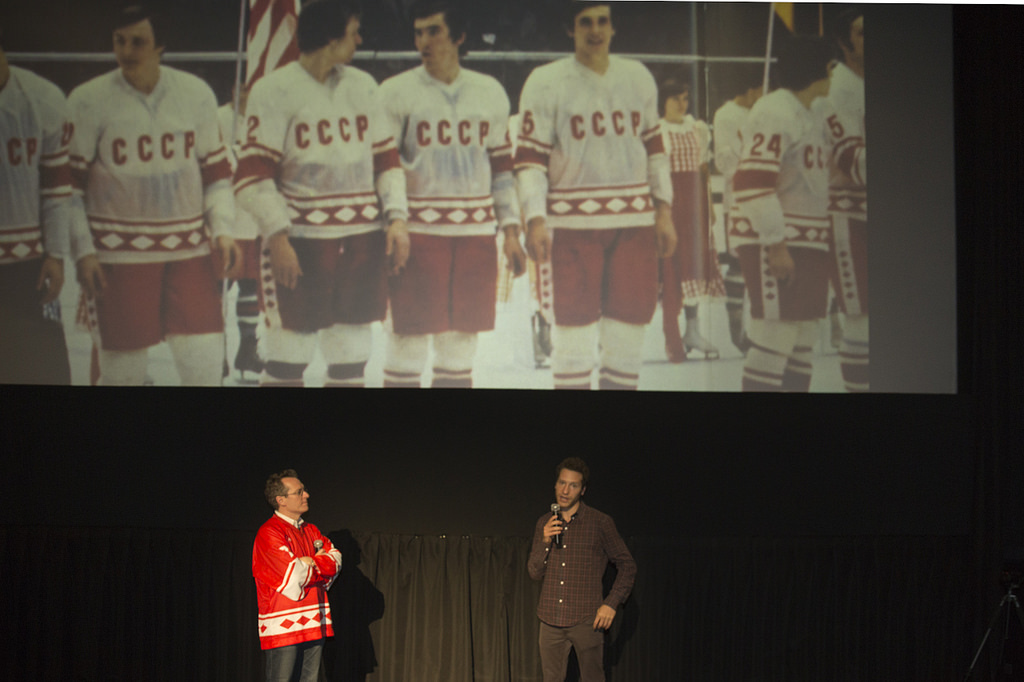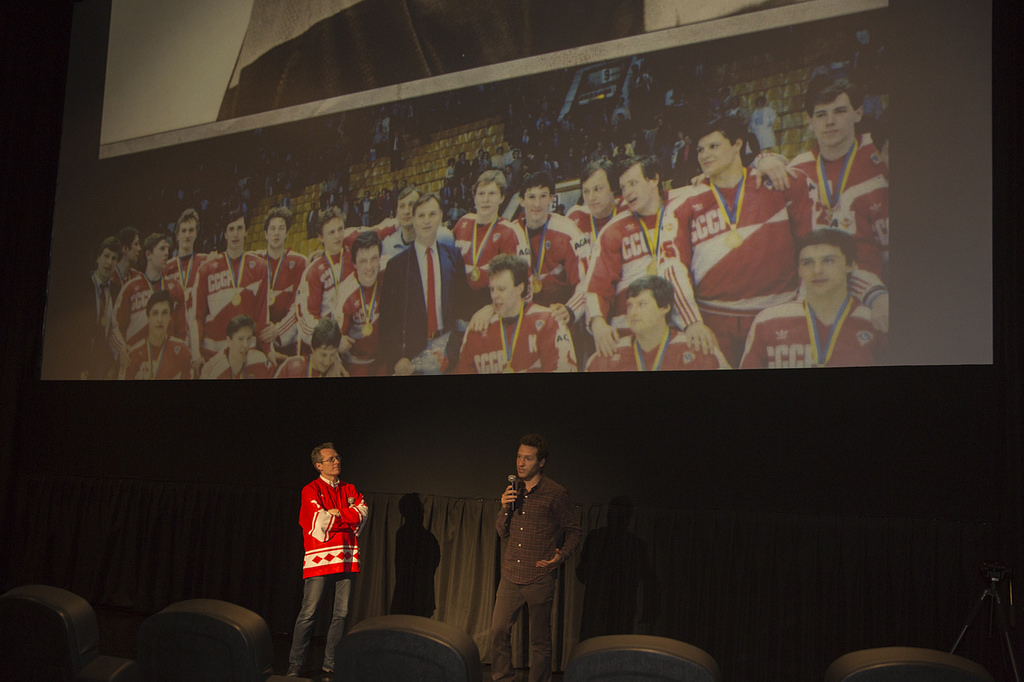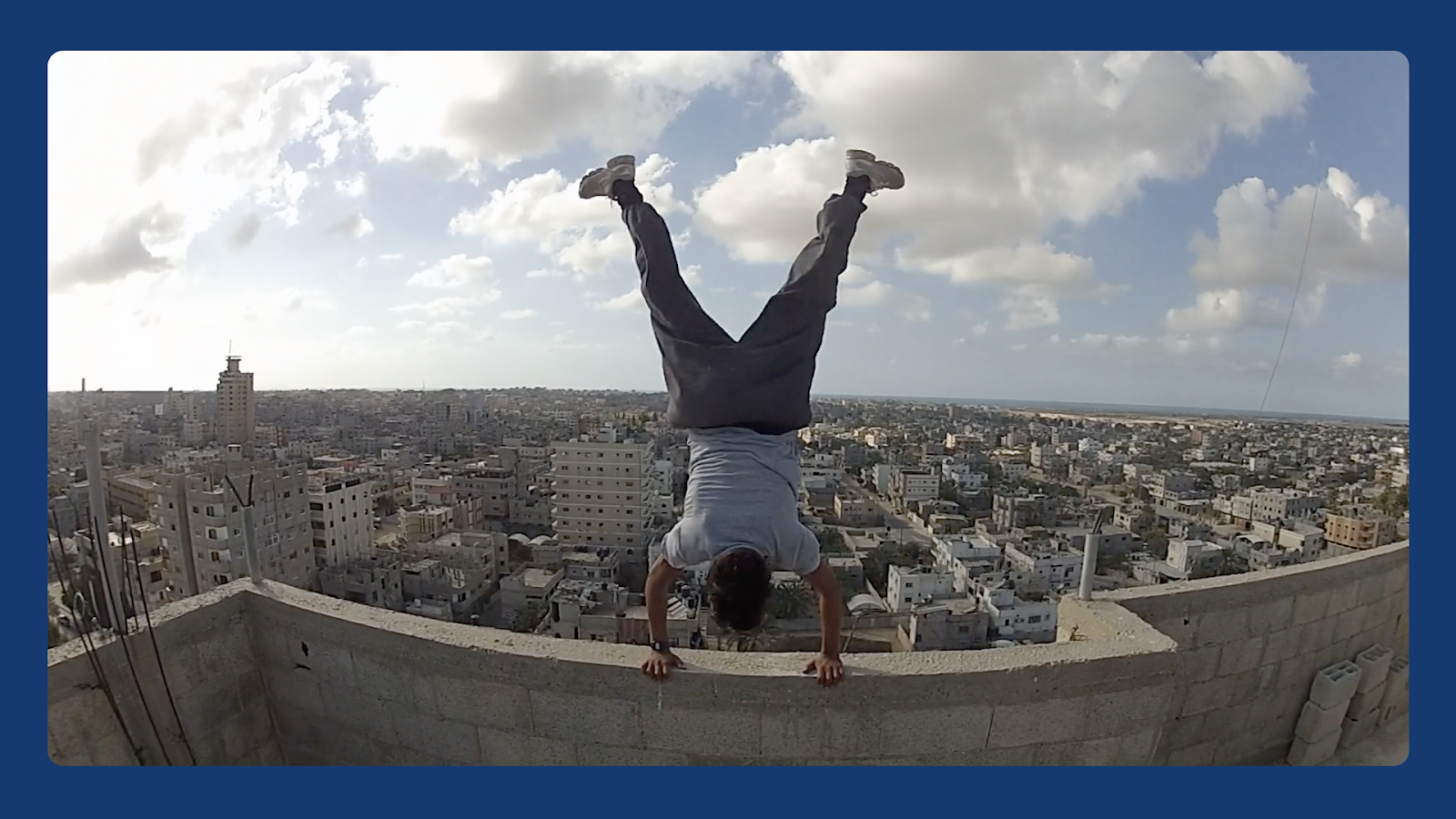Red Army: “A sports story turned political, and a political story turned personal”


Written by Laura Dattaro
The 1980 Olympic hockey game between the United States and the Soviet Union is well known in the the U.S. as the “miracle on ice,” a perfect American story of a ragtag band of college kids working together to defeat the Soviets in the midst of the Cold War.
But what’s less well known is the story masterfully told in Gabe Polsky’s Red Army, one of 15 films on the Short List of the Fifth Annual DOC NYC Festival. “One of the things that bothered me is that the legacy of Soviet hockey is, ‘Oh gosh, the miracle on ice!’” Polsky said in a discussion after the film. “That really made me sad.”
With Red Army, Polsky shows viewers the Soviet side of things — how hockey was wound up in the Soviets’ national propaganda efforts to promote the Soviet way of life, how the players aspired from childhood to represent their country on the ice, how they elevated the game of hockey to levels never before seen but did so by sacrificing control of their lives, spending 11 months of the year in training camps with little contact with their families. It’s a sports story turned political, and a political story turned personal.
Polsky flew to Russia to film one-on-one interviews with former Soviet players, who are for the most part surprisingly candid about their personal histories and complicated relationships with Soviet officials. But the star of the film is Vyacheslav Fetisov, a Soviet player regarded as one of the best defensemen to ever play hockey, whose own story guides the arch of the film’s narrative.
As a child, Fetisov attended the school designed to craft the best hockey players, which enlisted him in the Red Army. He played under Anatoli Tarasov, the first coach of the national hockey club, widely considered to be a kind, brilliant visionary who saw hockey as an art form and served as a mentor to his players. After Tarasov was fired, Fetisov and his teammates labored under Viktor Tikhonov, who forced grueling workouts on the team — “They pissed blood,” one goalie said of some of his teammates — and refused to let them visit family members or go home for holidays.
With capitalism looming in the West, the Soviets used their winning hockey team as “proof that the Soviet system was the best system,” one journalist says in the film. “It was politics, really.” And it wasn’t just the Soviets who felt this way. After the 1980 Olympic game, president Jimmy Carter called Herb Brooks, the U.S. hockey coach, in the locker room to congratulate him; Brooks responded, “Our way of life is the proper way to continue on.”
Polsky, whose parents emigrated to the United States from former Soviet Ukraine in 1976, had always loved hockey, eventually playing for the team at Yale. But it wasn’t until he saw a VHS tape of the 1980 game that he wanted to explore his European roots. “It was like a religious experience,” he said after the film. After Red Army debuted at Cannes, Polsky held a screening at a film festival in Moscow, where a press audience gave him a standing ovation.
The reaction, he said, made him feel he had done justice to the Soviet experience, and to people like Tarasov, whom he calls a “big inspiration.”
“There should be more people like Tarasov, not just in hockey,” Polsky said. “In North America I played hockey and my experience was really that coaches didn’t want you to be creative. It’s just not a part of sport here.”
For more about Red Army, visit the film page on the DOC NYC website.
Laura Dattaro is a freelance reporter in New York City focusing on science and the environment. Follow her on Twitter @ldattaro

